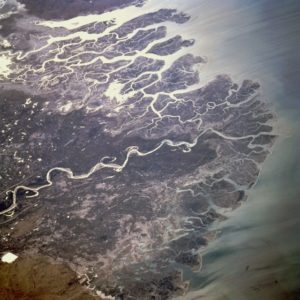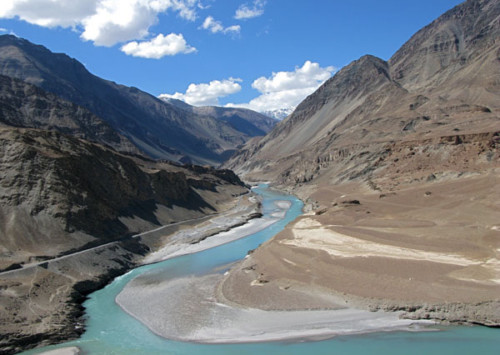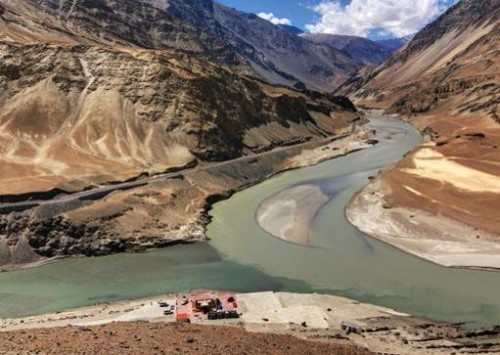Pakistan asks World Bank to continue arbitration on Indus Waters Treaty

The Indus river’s waters are shared by India and Pakistan in accordance with the Indus Waters Treaty
World Bank’s decision to pause arbitration over the recent Indo-Pak dispute over Indus Waters Treaty has been opposed by Pakistan.
Pakistan has requested the World Bank to “fulfil its obligations” regarding the Indus Waters Treaty (IWT), in objection to the body’s pause of two concurrent processes related to Indo-Pak dispute over Kishenganga and Ratle project. Kishenganga and Ratle are the sites of hydroelectric projects in Jammu and Kashmir, a northern Indian state that shares its borders with Pakistan. In early November, the World Bank had decided to set up a Court of Arbitration and appoint a neutral expert to deal with Pakistan’s complaint against the projects. Pakistan had expressed concerns that the two hydroelectricity projects would result in an adverse effect on the flow of waters from the rivers under the IWT. Even as the IWT had provided for a dispute settlement mechanism through an appointed body for the particular matter, World Bank was asked to step in. While Pakistan sought to resolve the dispute through a court of arbitration and the subsequent appointment of a chairman for the same, a neutral expert was sought by India on the issue.
Pakistan’s Finance Minister, Ishaq Dar stated in a letter to the World Bank President, Jim Yong Kim that the treaty does not provide for a situation wherein a party can “pause” performance of its obligations under the accord. He added that the proposed pause by the World Bank would merely prevent Pakistan from approaching a competent forum and having its grievances addressed. This came as a response to the World Bank’s announcement on the pause, where it had specified both parties “to consider alternative ways to resolve their disagreements”. “Both processes initiated by the respective countries were advancing at the same time, creating a risk of contradictory outcomes that could potentially endanger the Indus Waters Treaty. This is an opportunity for the two countries to begin to resolve the issue in an amicable manner and in line with the spirit of the treaty rather than pursuing concurrent processes that could make the treaty unworkable over time,” WB President Jim said, hoping both the countries to come to an agreement by the end of January, 2017.
IWT in danger
The IWT was signed by India’s first Prime Minister, Jawaharlal Nehru with the then President of Pakistan, Ayub Khan, in 1960. According to the pact, water from rivers was to be shared and distributed fairly between India and Pakistan. Even as the treaty survived the test of time and major disputes and wars between India and Pakistan, current Indian Prime Minister, Narendra Modi went onto review the treaty post the Uri attack, where 19 Indian soldiers were killed by a Pakistan-based militant group earlier this year. With statements such as “Blood and water cannot flow together”, Modi ignited speculations on the future of the treaty. An inter-ministerial task was formed in India consequently to look into the strategic aspects of the IWT, and it met a few days ago for the first time.
Primarily an agrarian economy, Pakistan is at a critical situation with water supply and had been termed as water scarce by many reports. The Pakistan Council of Research in Water Resources (PCRWR) has warned that the country may run dry by 2025 if immediate actions are not taken to address the problems. Even as the source of water scarcity has much to do with poor planning and lack of projects, India’s consistent efforts to isolate Pakistan diplomatically and reviewing the water-sharing arrangement through IWT puts Pakistan at a very tight spot.











